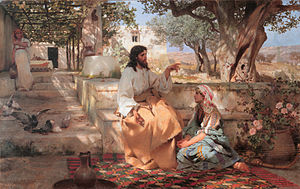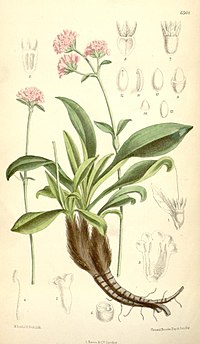Mary (The Woman Who Poured Perfume)

The Mary who poured perfume refers to the sister of Lazarus and Martha, who lived in the village of Bethany—located west of the Dead Sea and east of Jerusalem. She is often called Mary of Bethany. According to the Gospels, she loved hearing Jesus’ teachings and once poured expensive perfume on His feet.
Background and Family

Mary, the woman who poured perfume, lived in the village of Bethany. It is a small town situated about 2 kilometers east of Jerusalem,[1][2] on the southeastern slope of the Mount of Olives. Because of its close proximity to Jerusalem, Jesus and His disciples often visited Bethany before and after entering the city.[3] Mary’s family included her siblings, Lazarus and Martha.
Mary Loved Listening to Jesus’ Teachings
When Martha welcomed Jesus into her home, He began sharing the gospel. Mary sat at His feet, listening closely to His words. Meanwhile, Martha was busy preparing to serve the guests and became overwhelmed trying to manage everything on her own. She asked Jesus to tell Mary to help her. Jesus gently responded, “Martha, you are worried and upset about many things, but only a few things are needed—or indeed only one.” He then added, “Mary has chosen what is better, and it will not be taken away from her.”[4]
Resurrection of Brother Lazarus

When Mary and Martha’s brother Lazarus became seriously ill, they sent someone to ask Jesus to come quickly. But before Jesus arrived, Lazarus passed away. He was laid in a tomb, and many Jews came to Bethany to mourn with the family. On the fourth day after Lazarus’s burial, Jesus arrived in Bethany. Mary fell at Jesus’ feet and said through tears, “Lord, if You had been here, my brother would not have died.” Moved by Mary’s sorrow and the grief of those mourning with her, Jesus also wept. Then, standing before Lazarus’s tomb, Jesus prayed to God and cried out in a loud voice, “Lazarus, come out!” Lazarus came out—his hands and feet wrapped in linen, and his face covered with a cloth—alive once again.[5]
Pouring Perfume on Jesus
A few days before Jesus entered Jerusalem to celebrate the last Passover, He visited Bethany again. During this visit, Mary brought an expensive jar of nard perfume (Greek: νάρδος)[6] and poured it on Jesus. She then wiped His feet with her hair. In those days, washing a guest’s feet was considered an important act of hospitality.[7] Judas Iscariot criticized her, saying the perfume could have been sold for 300 denarii and the money given to the poor. But Jesus defended Mary, saying her act was in preparation for His burial.[8]
Six days before the Passover, Jesus came to Bethany, where Lazarus lived, whom Jesus had raised from the dead. Here a dinner was given in Jesus’ honor. Martha served, while Lazarus was among those reclining at the table with him. Then Mary took about a pint of pure nard, an expensive perfume; she poured it on Jesus’ feet and wiped his feet with her hair. And the house was filled with the fragrance of the perfume. But one of his disciples, Judas Iscariot, who was later to betray him, objected, “Why wasn’t this perfume sold and the money given to the poor? It was worth a year’s wages.” He did not say this because he cared about the poor but because he was a thief; as keeper of the money bag, he used to help himself to what was put into it. “Leave her alone,” Jesus replied. “It was intended that she should save this perfume for the day of my burial. You will always have the poor among you, but you will not always have me.”
The Record of the Woman Who Poured Perfume in the Bible
The story of a woman pouring perfume on Jesus is recorded in Matthew 26 and Mark 14, both set in Bethany. In John 12, the woman is identified as Mary.
Here's a comparison of the details from each Gospel:
| John 12 | Matthew 26 | Mark 14 | |
|---|---|---|---|
| Location | Bethany | Bethany, at the home of Simon the Leper[9][10] | |
| Reaction of others | Judas Iscariot rebuked, asking why the perfume wasn’t sold for 300 denarii and given to the poor. | The disciples were indignant, saying the perfume could have been sold for a high price and given to the poor.[11] | Some people criticized the woman harshly, saying the perfume could have been sold for 300 denarii and given to the poor.[12] |
| Jesus’ Response | “Leave her alone. It was intended that she should save this perfume for the day of my burial. The poor you will always have with you, but you will not always have me.” | “You will always have the poor with you, but you will not always have me.”
“Wherever the gospel is preached throughout the world, what she has done will also be told, in memory of her.”[13][14] | |
The Value of Nard Perfume

Nard is an aromatic oil extracted from the dried stems and roots of the spikenard plant, which only grows in high-altitude regions 3,000 to 4,000 meters above sea level. Because it only grows in such mountainous areas, the plant is very rare. Even after drying a large bundle of its tough stems and roots and steaming them, only a drop or two of oil can be extracted—making it extremely expensive. At that time, a laborer’s daily wage was about one denarius. A small alabaster jar of pure nard was worth 300 denarii—equivalent to an entire year’s wages for a worker.[15]
- Nard Perfume in the Bible
- While the king was at his table, my perfume spread its fragrance.[16]
- Your plants are . . . nard and saffron, . . . and all the finest spices.[17]
- A woman came with an alabaster jar of very expensive perfume, made of pure nard. She broke the jar and poured the perfume on his head.[10]
- Then Mary took about a pint of pure nard, an expensive perfume; she poured it on Jesus’ feet and wiped his feet with her hair. And the house was filled with the fragrance of the perfume.[18]
See also
References
- ↑ "John 11:18".
- ↑ 1 mile is approximately 1,609.344 meters. 2 miles is roughly 3 kilometers.
- ↑ "Mark 11:1-11".
- ↑ "Luke 10:38–42".
- ↑ "John 11:1–57".
- ↑ Strong's Greek: 3487. νάρδος, Bible Hub
- ↑ Life in biblical Israel, Philip J. King, Lawrence E. Stager, Presbyterian Publishing Corporation, 2001
- ↑ John 19:39, Bible Hub
- ↑ "Matthew 26:6–7".
- ↑ 10.0 10.1 "Mark 14:3".
- ↑ "Matthew 26:8–9".
- ↑ "Mark 14:4–5".
- ↑ "Matthew 26:10–13".
- ↑ "Mark 14:6–9".
- ↑ What does John 12:3 mean?, Bible Ref
- ↑ "Song of Songs 1:12".
- ↑ "Song of Songs 4:13–14".
- ↑ "John 12:3".





